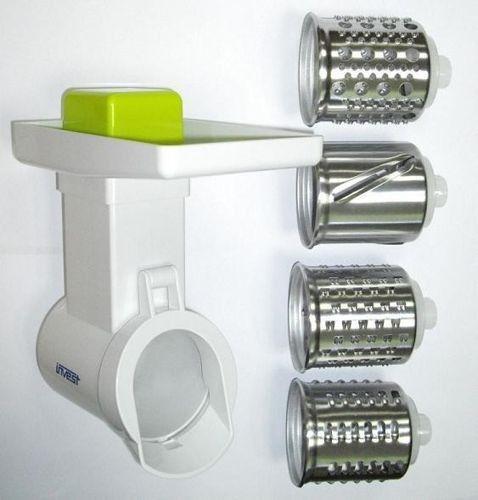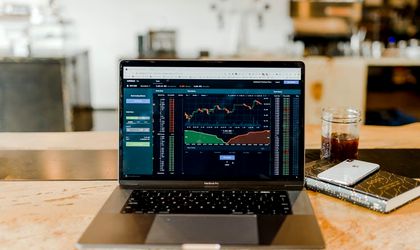
Fundrise vs REIT
In recent years, investors have been able to invest into private real estate deals through crowdfunding platforms without needing a large investment. These investments offer a way for you to diversify and also generate income through rental payments.
Fundrise offers a variety of investment options for investors, regardless of whether they are new to property investing or experienced investors looking for ways to increase their portfolio. The first thing you need to do is decide how much of a risk you can take and what sort of return on investment you desire.
The next thing to do is decide whether or not a reit would be a good investment for you. Although reits have similar returns to stock, they can be volatile and not always liquid. Reits also have higher fees compared to other investment types, which can impact your overall return.
REITs versus eREITs
A REIT (public non-listed entity) pools investments in order to buy and manage real estate properties. The REIT generates revenue for its investors by collecting rental payments from tenants. This type of investment is more suited for long-term investors who want to see a steady flow of income from their investment over time.

This type investment may be unsuitable for younger and more conservative investors because it is volatile. It can also be difficult to predict trends in the future. Furthermore, REITs often require a higher risk than other investment options, such as bonds and equities.
If you're interested in investing in real estate, a REIT is a good option for you. REITs are investments in equity in a real estate firm. They can be used for different types of property such as office buildings and hotels.
A second advantage of REITs, is that they offer a tax-efficient alternative to other property investments. REITs distribute a dividend that is not taxed as income to investors.
Besides a regular dividend, REITs also pay capital gains when they sell properties. These gains can be a nice addition to your income tax return, but they should not be treated as ordinary income since the money you receive from the sale of the asset comes from your own money.
Jhangiani says that you should take into consideration the REIT's management, fee structure and strategy as well as its leverage over assets. Also, ask how the company manages its cash flows and debt repayment.

Also, you should consider the fees or commissions that your broker or advisor charges. Shop around as these fees can be expensive.
Fundrise offers a variety of eREITs that you can invest in based on the goals you have. These eREITs have distinct goals and can either be income-oriented or grow-oriented. The company has a number of goals-based Portfolios that contain up to seven eREITs.
FAQ
How does inflation affect the stock market
Inflation can affect the stock market because investors have to pay more dollars each year for goods or services. As prices rise, stocks fall. You should buy shares whenever they are cheap.
How are share prices established?
Investors decide the share price. They are looking to return their investment. They want to make money from the company. They buy shares at a fixed price. If the share price increases, the investor makes more money. The investor loses money if the share prices fall.
An investor's primary goal is to make money. This is why they invest in companies. It helps them to earn lots of money.
What is security at the stock market and what does it mean?
Security is an asset that produces income for its owner. Shares in companies is the most common form of security.
A company may issue different types of securities such as bonds, preferred stocks, and common stocks.
The value of a share depends on the earnings per share (EPS) and dividends the company pays.
You own a part of the company when you purchase a share. This gives you a claim on future profits. If the company pays you a dividend, it will pay you money.
Your shares may be sold at anytime.
Why are marketable securities important?
An investment company's primary purpose is to earn income from investments. It does this through investing its assets in various financial instruments such bonds, stocks, and other securities. These securities are attractive because they have certain attributes that make them appealing to investors. They may be considered to be safe because they are backed by the full faith and credit of the issuer, they pay dividends, interest, or both, they offer growth potential, and/or they carry tax advantages.
What security is considered "marketable" is the most important characteristic. This refers to the ease with which the security is traded on the stock market. You cannot buy and sell securities that aren't marketable freely. Instead, you must have them purchased through a broker who charges a commission.
Marketable securities include common stocks, preferred stocks, common stock, convertible debentures and unit trusts.
These securities are a source of higher profits for investment companies than shares or equities.
What is a Stock Exchange?
Companies can sell shares on a stock exchange. This allows investors the opportunity to invest in the company. The market decides the share price. The market usually determines the price of the share based on what people will pay for it.
Investors can also make money by investing in the stock exchange. Investors invest in companies to support their growth. This is done by purchasing shares in the company. Companies use their money to fund their projects and expand their business.
There can be many types of shares on a stock market. Some of these shares are called ordinary shares. These are the most commonly traded shares. Ordinary shares can be traded on the open markets. Prices for shares are determined by supply/demand.
Other types of shares include preferred shares and debt securities. Preferred shares are given priority over other shares when dividends are paid. Debt securities are bonds issued by the company which must be repaid.
How can I find a great investment company?
You should look for one that offers competitive fees, high-quality management, and a diversified portfolio. Commonly, fees are charged depending on the security that you hold in your account. Some companies don't charge fees to hold cash, while others charge a flat annual fee regardless of the amount that you deposit. Some companies charge a percentage from your total assets.
You should also find out what kind of performance history they have. Companies with poor performance records might not be right for you. Companies with low net asset values (NAVs) or extremely volatile NAVs should be avoided.
It is also important to examine their investment philosophy. In order to get higher returns, an investment company must be willing to take more risks. If they aren't willing to take risk, they may not meet your expectations.
Statistics
- Ratchet down that 10% if you don't yet have a healthy emergency fund and 10% to 15% of your income funneled into a retirement savings account. (nerdwallet.com)
- For instance, an individual or entity that owns 100,000 shares of a company with one million outstanding shares would have a 10% ownership stake. (investopedia.com)
- The S&P 500 has grown about 10.5% per year since its establishment in the 1920s. (investopedia.com)
- "If all of your money's in one stock, you could potentially lose 50% of it overnight," Moore says. (nerdwallet.com)
External Links
How To
How to create a trading plan
A trading plan helps you manage your money effectively. It will help you determine how much money is available and your goals.
Before creating a trading plan, it is important to consider your goals. You may wish to save money, earn interest, or spend less. You might consider investing in bonds or shares if you are saving money. If you're earning interest, you could put some into a savings account or buy a house. If you are looking to spend less, you might be tempted to take a vacation or purchase something for yourself.
Once you decide what you want to do, you'll need a starting point. It depends on where you live, and whether or not you have debts. Consider how much income you have each month or week. The amount you take home after tax is called your income.
Next, you'll need to save enough money to cover your expenses. These expenses include rent, food, travel, bills and any other costs you may have to pay. These expenses add up to your monthly total.
The last thing you need to do is figure out your net disposable income at the end. That's your net disposable income.
Now you know how to best use your money.
To get started with a basic trading strategy, you can download one from the Internet. Or ask someone who knows about investing to show you how to build one.
Here's an example.
This displays all your income and expenditures up to now. Notice that it includes your current bank balance and investment portfolio.
Another example. This was designed by a financial professional.
This calculator will show you how to determine the risk you are willing to take.
Don't try and predict the future. Instead, think about how you can make your money work for you today.